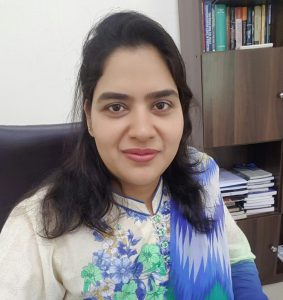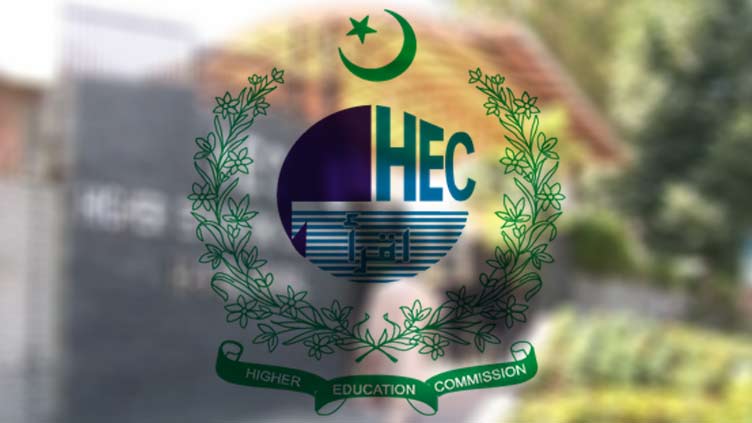Dr Lubna Zaheer
The Higher Education Commission of Pakistan (HEC) is in news once again. According to some newspaper reports, the federal government has approved the Federal Higher Education Commission Act 2002 amendment bill from the federal cabinet. Now this draft law will be submitted to the National Assembly for approval. Once again, there are fears that if this bill is passed, the HEC’s powers and its chairman will be severely limited. I couldn’t find the draft of this latest amendment bill. It is being reported through the media that after the approval of the bill, the provincial higher education commissions will remain inactive. It is also being told that the authority to establish new universities is generally given by the federal HEC will get it. etc, etc.
The Commission has been in trouble for the past several years. The situation was relatively better during the previous regime of the PML-N. Funds were also available and the commission’s chairman also had powers. Controversy erupted when the Commission’s Chairman, Dr Tariq Banuri and Dr Attaur Rahman indulged in a power struggle during the Imran Khan regime. Dr Banuri raised an objection to the intervention of the Prime Minister’s House, and overnight, through a presidential ordinance, the tenure of the commission’s chairman was reduced from four years to two years. Then the matter went to a court and the HEC became a worldwide laughing stock.
When Shehbaz Sharif came into power, his attention was also drawn towards the commission. The government prepared a draft for amendments in the Commission Act. I agreed to read the draft. The fact is that some of the points in the amendment bill were justified. For example, the government wanted the commission to audit funds worth millions of rupees. And that the financial matters of the commission are subject to the rules and regulations determined by the Auditor General of Pakistan. Regular rules and regulations should be formulated for the recruitment of advisers etc. in the commission. Who can object to these points? . But the points which were included in the draft law to remove or limit the powers of the Commission Chairman can be objected to.
At present, the HEC’s chairman reports directly to and is accountable to the Prime Minister of Pakistan. The rank of the Chairman is equal to that of the federal minister. It was suggested that the status of federal minister should be withdrawn from the commission’s chairman. There was also a suggestion that the prime minister would be able to delegate his powers to the education minister. Thus, the chairman will be accountable to the education minister and the ministry of education. It was rightly objected that in this way the position of the chairman would be greatly reduced. Someone should ask the government what will be the benefit of this change? There is already a long queue of ministers and advisers here. If the HEC chairman is also included in this row, then what is wrong with it? In principle, the status of the commission’s chairman should be equal to that of the federal minister. When the head of the commission goes abroad for various agreements, he gets the protocol of the minister. It’s easy to meet and make agreements with the federal ministers and high officials of this country. . In this regard, I had a conversation with a learned politician of the PML-N. He said that what’s wrong if the vice-chancellors of universities also get the status of the federal minister? He thought that the people associated with the education sector should be respected.

The draft that I saw a few months ago included a provision that the power to appoint the Executive Director would rest with the government rather than the commission. One provision was related to reducing the members of the commission. It was feared that the representation of the provinces would be affected. It was suggested that the HEC would be the sole body to regulate all educational institutions. This threatened to remove or limit the powers of bodies like the Pakistan Medical Commission, Pakistan Engineering Council, and the Pakistan Bar Council. It is not known what amendments are included in the draft approved by the cabinet, but it is being speculated that this is the same draft law that was prepared a few months ago and which I have mentioned in this column. If this is the same draft law, then in my opinion, after the implementation of this law, some of the commission’s options will certainly be limited. However, by getting the powers of provincial commissions, the PBC, PEC and PMC, the HEC will emerge as a more powerful organisation than before.
Regardless of all this debate, it is the legitimate right of the government to amend any law. But wouldn’t it be better if the government ensure consultation with the relevant stakeholders before taking any action and before exercising its right. What was wrong if the heads of public and private universities, or provincial commissions were consulted regarding this amendment bill? But this has not been done. It is felt that our aristocracy has turned the education sector into a [wrestling] ring. The one, who gains power, starts experimenting on the institutions.
An important issue is that for the last several months, many universities of Punjab have been deprived of permanent vice-chancellors. The whole work is going on adhoc basis. The affairs of the universities are being run by appointing someone a temporary supervisor. The provincial caretaker government has initiated the process of appointment of vice chancellors. Some people have moved the courts over this issue. Courts sometimes grant stay, sometimes order for postings and then again grant stay. I don’t understand how this system will work. Ideally the provincial government should have settled this matter before departing. A few months before the tenure of the vice-chancellors ends, the process of appointing new vice-chancellors would have been started to dispel the impression of uncertainty. But this important matter would have been looked at when education was included in the priorities of this government.
The Punjab Assembly was dissolved to achieve political gains and the government eventually left. The situation in Islamabad is not different as two important universities of Islamabad are running on ad hoc basis. We heard that President Arif Alvi didn’t like the candidates sent for the heads of universities. Therefore, the files were returned. Unfortunately, even a sensitive matter like the appointment of vice-chancellors in universities have become a victim of political and personal dislike. How could the education sector improve in this situation?

— The author is an academician and political analyst
Disclaimer: The views expressed in this article are those of the author and do not necessarily reflect the official policy or position of Lahore Mirror

